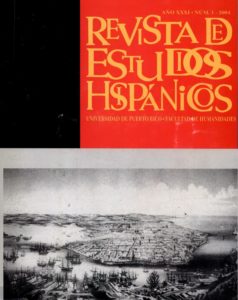Abstract
In addition to Guillermo Valencia 's conservative and religious political role, nowadays he is still known as the coldest and most relevant Parnassian poet of Latin American Modernism. This is the main reason for the revisionist aim of this article, which deals with the Modernist end of century themata (i. e., homosexuality, incest, misogyny, and the femme fatale icon, among others) in Valencia's original poetry published in Ritos. With the term poe-ética, it also stresses the influence of Edgar Allan Poe's romantic ethics and aesthetics in the artistic thought of the Popayanian Lyric. Conceived through Roman Jakobson's model for the poetic function, this poe-ética equalizes the poet with the non-religious mystic or priest, whose mission is to bind the most extreme opposites. The Colombian poet usurps mystical Language which -far from translating the mystical experience- makes every effort to communicate such coincidentia oppositorum as can be represented in the sacred/profane duality. This is why the lyrical ego could become a queer priest in relation to a dead friend, in accordance with the gay reading of several images in Ritos. On the other hand, there are poems which also allow a feminist reading by reason of the patent misogyny present in the lyrical voice.This work is licensed under a Creative Commons Attribution-NonCommercial 4.0 International License.
Downloads
Download data is not yet available.

